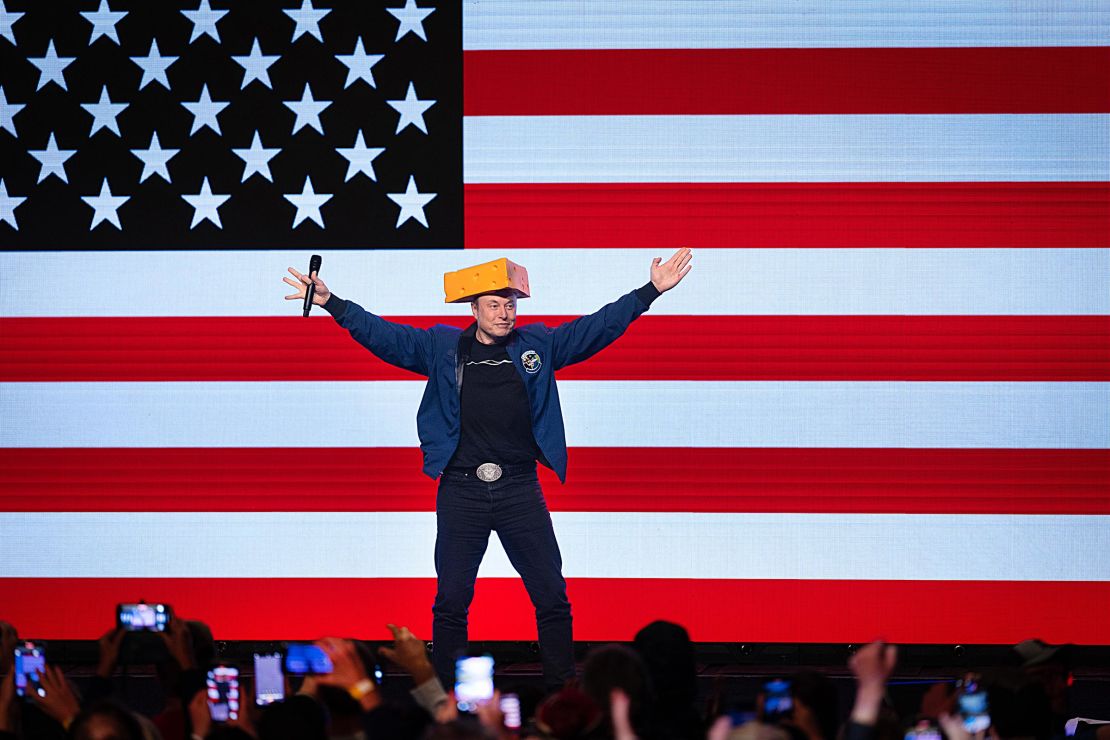A version of this story appeared in CNN Business’ Nightcap newsletter. To get it in your inbox, sign up for free here.
All it took was losing $100 billion in three months to make Elon Musk change his tune on government work.
ICYMI: The last 24 hours have brought a parade of humiliation for the world’s richest edgelord, starting with his $20 million losing bet on the pro-Trump candidate for the Wisconsin Supreme Court. Hours after the loss in Wisconsin, Tesla reported its biggest sales drop ever, falling 13% in the first quarter, while its No. 1 rival grew revenue by 60% in the same time period. Then came a Politico report quoting MAGA insiders who say that Musk has overstayed his welcome in Washington.
The White House on Wednesday called the Politico report “garbage,” and Musk dismissed it as “fake news” in social media post. But the administration confirmed that Musk is expected to wrap up his stint as Trump’s hatchet man in late May or June, when his 130 days as a “special government employee” comes to an end. That was enough to reverse a 6% decline in Tesla shares — a sign investors are optimistic that Musk will ditch the cheese-hat shenanigans and focus on his company’s rapidly shrinking market share (and maybe, possibly, deliver on his long-delayed promises to revolutionize autonomous driving.)

In short: Voters, customers, investors and the MAGA elite say the Elon Musk show has lost the plot.
Musk has shed more than a quarter of his total net worth since January as Tesla shares have tanked. He remains the world’s richest person by a country mile with $323 billion — second-placer Jeff Bezos is still more than $100 billion behind.
Because Musk is both the public face of Tesla and its biggest individual shareholder, when one suffers, the other suffers in kind. Musk’s alliance with the far right has torched Tesla’s brand in the eyes of what used to be the carmaker’s base: upwardly mobile eco-conscious lefties from the coasts.
It was never clear how Musk planned to replace those customers with folks from red states who have long resisted EV adoption. So far, various attempts to stem the bleeding have only made things worse.
A live Tesla sales pitch with Trump on the South Lawn reeked of desperation. The Commerce secretary’s urging of regular Americans to buy Tesla shares, similarly, fell flat. And the FBI threatening to prosecute Tesla vandals as domestic terrorists — a wild re-imagination of the meaning of “terrorism,” according to legal experts — only reinforced the sense of desperation around the brand.
But the ultimate rebuke came from voters. Musk tried to use his virtually infinite money to influence the Wisconsin race, and even showed up in a giant cheese hat at a rally in Green Bay, during which he handed out two $1 million checks to voters in a stunt that faced an immediate legal challenge.
His effort backfired, and the state court retained its 4-3 liberal majority.
Bottom line: Money can buy a lot of things, but not all things. And with Tesla’s continued sales drop, Musk is getting a harsh reminder that he’s not the only one who can wield a pocketbook to send a message.






